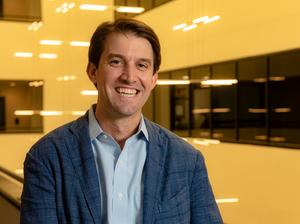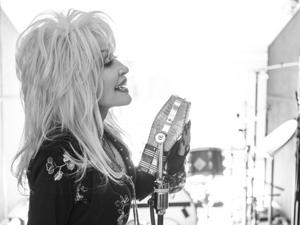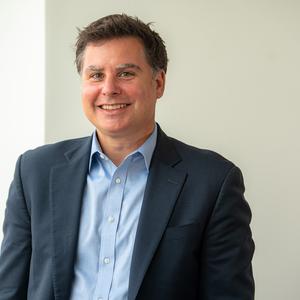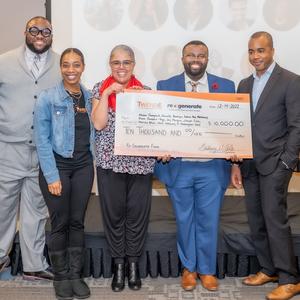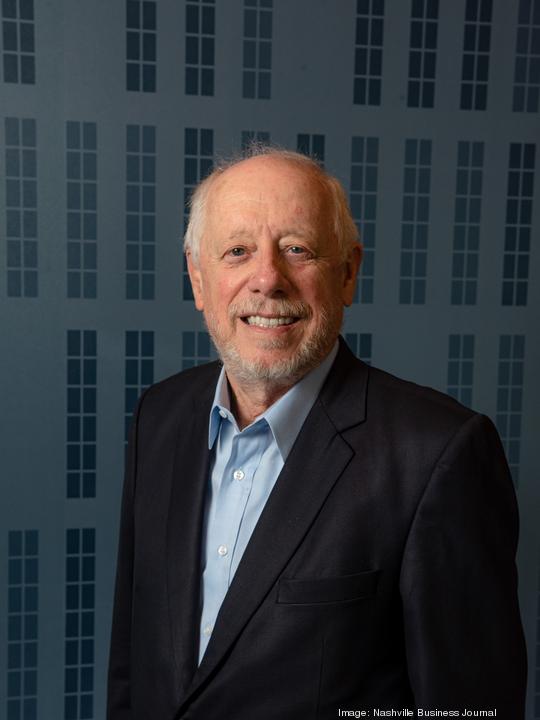
Nashville Entrepreneur Center’s 2021 Entrepreneurs’ Hall of Fame class was honored Monday night at the Schermerhorn Symphony Center during the EC's annual NEXT Awards.
The class featured a businessman turned politician, a musician turned chef and an executive who turned her family business into one of the nation’s most successful Black-owned design and construction firms.
We sat down backstage with each honoree to learn why they became entrepreneurs, what their proudest moments in business are and what advice they have for young founders.
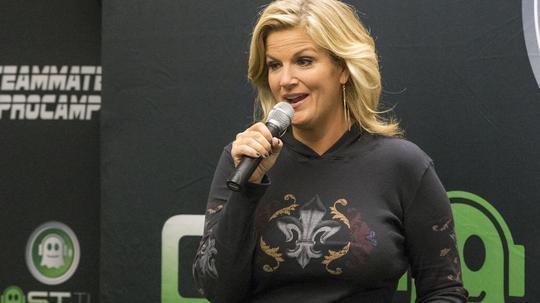
Trisha Yearwood
Trisha Yearwood is a country music singer who has three bestselling cookbooks and an Emmy Award-winning Food Network series. She also has her own line of pet products, a dinnerware collection, as well as furniture and home accessories.
With your success in the music industry, what made you want to become an entrepreneur? When I moved to town and I started doing demos for publishers and songwriters, I really was my own boss. I had to get my own work. I was kind of an entrepreneur when I was hitting the pavement on Music Row, trying to get people to hire me for $20 a song just to get my voice heard around town. When my music took off, the fact that it was successful is what opened the door [to entrepreneurism.] I don’t think anyone would be coming to me saying, ‘Hey, would you like to have a furniture line?’ if I hadn’t had success somewhere else. I really just said ‘Yes,’ to the things I thought I would enjoy. I didn’t know it would turn into another career. … That’s been my guide: if I’m passionate about something and there’s a way to turn it into a business that helps people.
What’s the proudest moment of your business career? I’m really proud of the cookbook success because I wrote the first book with my mother and my sister and my dad had just passed away. My mom and dad were both really good cooks. I had gone to New York to talk to a publisher about writing an autobiography. I was 40[-years-old] and I was like, ‘Not yet and maybe never.’ In the meeting they said, ‘Well, what would you like to write about?’ Not premeditated, I said, ‘I like to cook.’ … What I didn’t realize would be so wonderful is that we have four New York Times best sellers now and my recipes — which were my mother’s, who is now also gone, and my father’s and grandparent’s — people all over the world now make those recipes. For me, cooking their food is what keeps them alive … and it brings me joy to know they’re living on in this way.
It’s tough to be an entrepreneur but the music industry is also not easy. Which has been tougher for you, music or business? It depends, my first single went to No. 1 and I thought, ‘This is easy.’ Then, I realized it’s not that easy and it gets harder. … After 30 years, I feel like I know the music industry. But the publishing world is completely different for books. The furniture business is completely different. You have to learn each one.
What do you know know now that you wish you’d known when you were starting out in business that may help young Nashville entrepreneurs? When you’re young and starting out, you tend to think, ‘I really believe in this but what do I know?’ And sometimes you’re the only person to believe in it. My advice is to trust that gut. You know what’s best for you. … Listen and trust that inner voice because it’s usually right.
Leatrice McKissack
Leatrice McKissack took over as CEO of architecture firm McKissack & McKissack, which was founded in 1905, after her husband's debilitating stroke in the 1980s. She won contracts for projects at Fisk University, Tennessee State University and the National Civil Rights Museum in Memphis. Today, McKissack & McKissack is the nation’s oldest Black-owned design and construction firm.
What did you learn about yourself when you stepped into the business? Well, I tell you what, it took a whoooole lot of work and energy. First of all, if you know that you’re capable of doing something, that’s 55% or 60% of the battle. And then the other thing is called perseverance. Absolutely hard work. Even if you don’t feel like doing it, you have to go. There were a whole lot of days where I wished I hadn’t have done it. I can remember it would be icy and cold and I was sliding on the road driving to work, and I would say, ‘You know, I didn’t have to do this.’ But it’s called commitment, and once you commit, you just got to follow through. You can’t be a quitter. … My daughters were 100% behind me.
What was your reaction when you found out you were going to be honored? I was shocked. I really was. I was sort of in a bad place when it came about, because I wasn’t feeling well at all. I didn’t think about the significance of it until I finally got myself feeling better. I’m 91, going on 92, and it’s not exactly a piece of cake. … At [70], I was still working. [My daughter, Cheryl] retired me. She called me up and said, ‘I think it’s time for you to go home.’ I said, ‘What are you talking about? You can’t fire me.’ But I said let me shut up, close my mouth up and do what she said. Honey, I got in my car and turned on the radio and was riding home down West End, feeling so good. I had a ball, until I just got old.
What do you make of all this construction going on in Nashville today? I mean, it’s wonderful. I’m going to have to hire my driver to take me around and see all these wonderful places, all the different buildings.
Lucius Burch III
Burch Investment Group Chairman and CEO Lucius Burch III is a prolific Nashville venture capitalist, specializing in corporate finance, mergers and acquisitions and management consulting. Burch was an early investor in CoreCivic and ran a venture capital firm with HCA Healthcare Inc co-founder Jack Massey.
What made you want to get into the world of venture capitalism? I worked for a man named Jack Massey. Massey might have been, and probably is, the best entrepreneur that ever came out of Tennessee. He had three companies he listed on the New York Stock Exchange. I had the experience of working for a legend. That was quite informative and gave me insight into the entrepreneurial experience.
What was the biggest lesson you learned from Jack Massey? One was ‘Quality is your recipe.’ Whatever you do, do it quality. No. 2 is build team. Have yourself surrounded by good people.
What is your proudest moment in business? One of the things I was intrigued with in Massey, was he started or led two industries: the fast-food franchise industry with KFC and the hospital industry with HCA. I was intrigued with that and I wanted to create an industry myself. Corrections Corporations of America [today known as CoreCivic] was the first private prison company in America. It is now very successful and I’m really proud of the fact that I am responsible in a way for that.
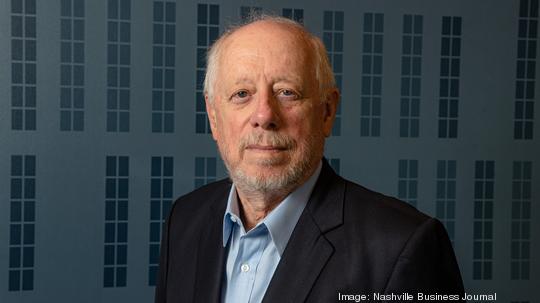
Phil Bredesen
Prior to becoming mayor of Nashville and then governor of Tennessee, Phil Bredesen was an entrepreneur, founding HealthAmerica Corp. and selling it in 1986 for approximately $400 million. Bredesen’s latest ventures have been in the solar-energy sector, founding Nashville-based Clearloop and Silicon Ranch, which raised $225 million from investors last year.
What made you want to be an entrepreneur? I think creative people like to build things. Sometime they’re writers. Sometimes they’re woodworkers. Sometimes its companies they like to build and that’s what I’ve always liked to do: make products, crate jobs and watch things grow. I’ve done a number of them and it gives you a lot of pleasure.
What’s your proudest moment as an entrepreneur? When my very first company went public. I would say that’s a high point.
What’s tougher: being an entrepreneur or a politician? A politician. I think really good politicians are entrepreneurs at heart, because they are trying to figure out new and different ways of doing things and how to create something in their community that is different than was there before.
